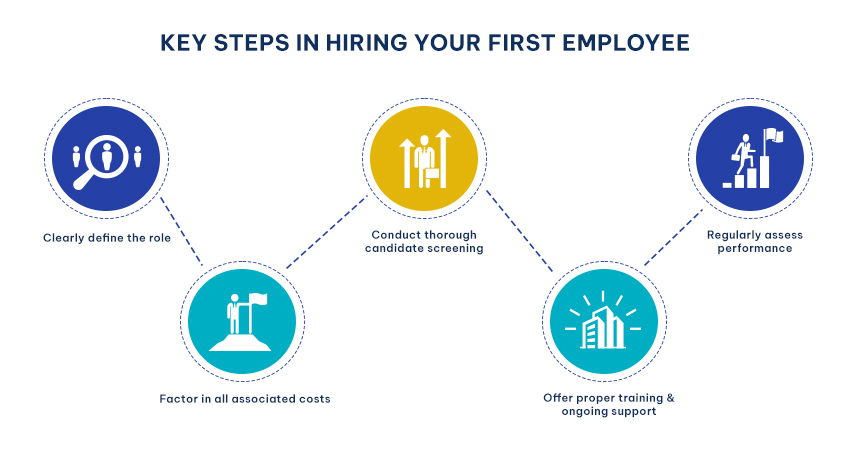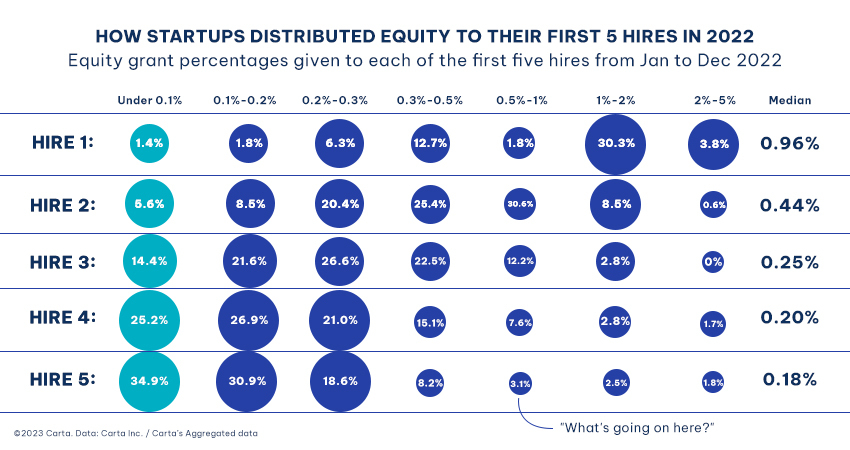
Hiring First Five: Lessons in Culture Before Scale
Startups don’t fail because of bad ideas; they fail because of the wrong people. That is why your first hires must be chosen carefully, not just for their skills but for how they think, collaborate, and adapt. These people form the DNA of your company, shaping its culture, direction, and long-term success.
Your earliest team members do more than just fill roles. They set the tone for how your business will operate, how decisions will be made, and how challenges will be tackled. Getting these first choices right means looking beyond technical skills to find people who believe in your vision, thrive in uncertainty, and bring the right energy to help you grow. Here are some key lessons to help you make the right calls from day one.
Early Hires Shape Everything
Think of your first five hires as the co-authors of your company’s story. Jeff Raider, co-founder of Harry’s, once said that the first 10–15 hires in a startup have a significant influence on its culture. And he’s spot on. These are the individuals who set the tone for how things get done, how problems are tackled, and how your brand actually feels from the inside out.
In India’s bustling startup hubs like Bengaluru, Gurugram, and Hyderabad, founders are actively looking for team members who hold much more than just technical skills. They require people who are resilient, resourceful, and agile. Professionals who can thrive in ambiguity and enjoy building something from scratch, not just following a process.
The Price of Overlooking Culture
If you don’t get cultural fit right, it can significantly impact your business. According to a study by Kofi Group, a whopping 33% of new hires quit within the first 90 days, most often because they don’t fit the company culture. And here’s the kicker: every bad hire can cost you 30% of their annual salary. In India, it’s still relatively common for startups to hire from prestigious institutions such as IITs and IIMs. However, high IQ doesn’t always equate to startup fit. One IIM founder even shared that he turned down four IIT graduates because, despite their technical brilliance, they didn’t bring the right energy.
Skill vs. Cultural Alignment: The Balancing Act
While technical expertise matters, it shouldn’t outweigh the importance of cultural fit. A Dover research of early-stage startups indicates that 47% of early hires generally happen to be in Engineering and 17% in Product Management/Design, and together they make up nearly two-thirds of the startup team. However, skills alone aren’t enough. These employees are expected to resonate with the startup’s values and work ethic to construct a cohesive team.
In India and globally, it’s clear that cultural alignment is essential as it delivers real results. An SHRM study found that when company culture matches employee values, job satisfaction rises by 30%. On the other hand, companies with robust cultural alignment also tend to outperform competitors by up to 30% on performance and engagement.

The Role of Onboarding in Cultural Integration
Even the best hires can walk away if their onboarding isn’t handled right. Research indicates that 69% of employees are more likely to stay with an organisation for at least three years only if they have a positive onboarding experience. In the Indian startup ecosystem, where remote work is becoming more prevalent, onboarding processes must be adapted to ensure new hires feel integrated into the company culture. This comprises virtual team-building activities, daily check-ins, and transparent communication of the company’s values and expectations.
Equity and Ownership: Aligning Interests
Offering equity to the first five team members of the company is considered one of the smartest ways to get them truly invested in the company’s long-term success. According to startup compensation studies by Carta and Kruze Consulting, the first few key employees together often receive around 3.6% of the company’s equity, with the very first hire typically getting the largest share. It’s not just a financial perk, but it gives people a real sense of ownership and belonging.
In India, where startup valuations are going through the roof, equity can be a game-changer when it comes to attracting top talent. It’s not just a bonus; it’s a way of ensuring your team rises with you, not just works for you.

The Risk of Diversity Debt
Here’s something people don’t talk about enough: if your early team looks the same, thinks the same, and acts the same, you’re setting yourself up for what’s called “diversity debt”, and trust me, it’s a tough one to fix later. Consider what happened with Uber, where the company initially overlooked diversity, resulting in a toxic culture that ultimately harmed the brand significantly.
In India, where startups are booming even in Tier 2 and Tier 3 cities, diversity isn’t just a feel-good factor. It brings fresh ideas, wider reach, and better products. So, make it a priority from the start because fixing it later is always harder than getting it right from the beginning.
The Importance of Versatility and Autonomy
Early hires should be versatile and capable of working autonomously. A Stripe guide emphasises that early employees often establish operational precedents, which influence how problems are solved and decisions are made. Their ability to adapt and take initiative is crucial in a startup environment. In the Indian context, where resources may be limited, hiring individuals who can wear multiple hats and take ownership of various tasks can significantly contribute to the startup’s growth and success.
Founders Can’t Outsource Early Hiring
Founders should be actively involved in the hiring process, especially during the early stages. Your first few hires are too important to hand off to HR or recruiters. As a founder, you need to be right there, having those conversations, getting a feel for not just what someone can do but who they are and how they think.
A LinkedIn article advises founders to think holistically about hiring, considering not only technical skills but also cultural fit, attitude, and adaptability. This approach ensures that the early team aligns with the company’s vision and values.
Building a Sustainable Culture
As startups scale, maintaining the culture created by the initial hires becomes challenging. It’s crucial to document cultural values, establish clear communication channels, and ensure that new hires comprehend and uphold the company’s ethos. As the business expands, regular feedback and open discussions can help sustain the culture of the company.
In India, where startups are expanding rapidly, developing a sustainable culture is essential to draw in and retain talent, encourage innovation, and ensure long-term success.
Summary: Lessons For the First Five Hiring
| Key Lesson | Insight | Why It Matters |
| 1. Early Hires Shape Everything | First hires define a company’s culture, values, and working style. | They set the tone for decision-making, problem-solving, and growth. |
| 2. Culture Over Skills | A poor cultural fit leads to early attrition (33% quit within 90 days). | Bad hires cost 30% of annual salary and harm team morale. |
| 3. Skill vs. Culture Balance | 47% of early hires are in tech roles, but alignment with values is crucial. | Culture fit drives 30% higher job satisfaction and performance |
| 4. Onboarding Matters | 69% more likely to retain employees with positive onboarding. | Helps new hires integrate and stay with the organisation longer. |
| 5. Equity & Ownership | First hires often receive ~3.6% equity collectively. | Encourages long-term commitment and a sense of ownership. |
| 6. Avoid Diversity Debt | An early lack of diversity can lead to a toxic culture and limited innovation. | Diverse teams build better products and resilient cultures. |
| 7. Versatility & Autonomy | Early hires must wear multiple hats and take initiative. | Flexibility is key in resource-constrained startup environments. |
| 8. Founders Must Hire Personally | Founders’ involvement ensures alignment with their vision and values. | Can’t outsource early hiring as it’s too critical to success. |
| 9. Sustainable Culture | Culture must evolve while staying true to its original values. | Drives innovation, retention, and long-term scalability. |
Conclusion
Your first five hires are creating the foundation of your business, not just filling positions. In fact, you’re creating the future by prioritising cultural alignment, rewarding ownership, embracing diversity, and establishing the proper tone for leadership and onboarding. And in the ever-evolving world of Indian startups, where speed, grit, and adaptability prevail, getting this right isn’t optional – it’s everything.
Scaling a startup isn’t just about growing numbers but about cultivating the right mindset, values, and people from day one.




